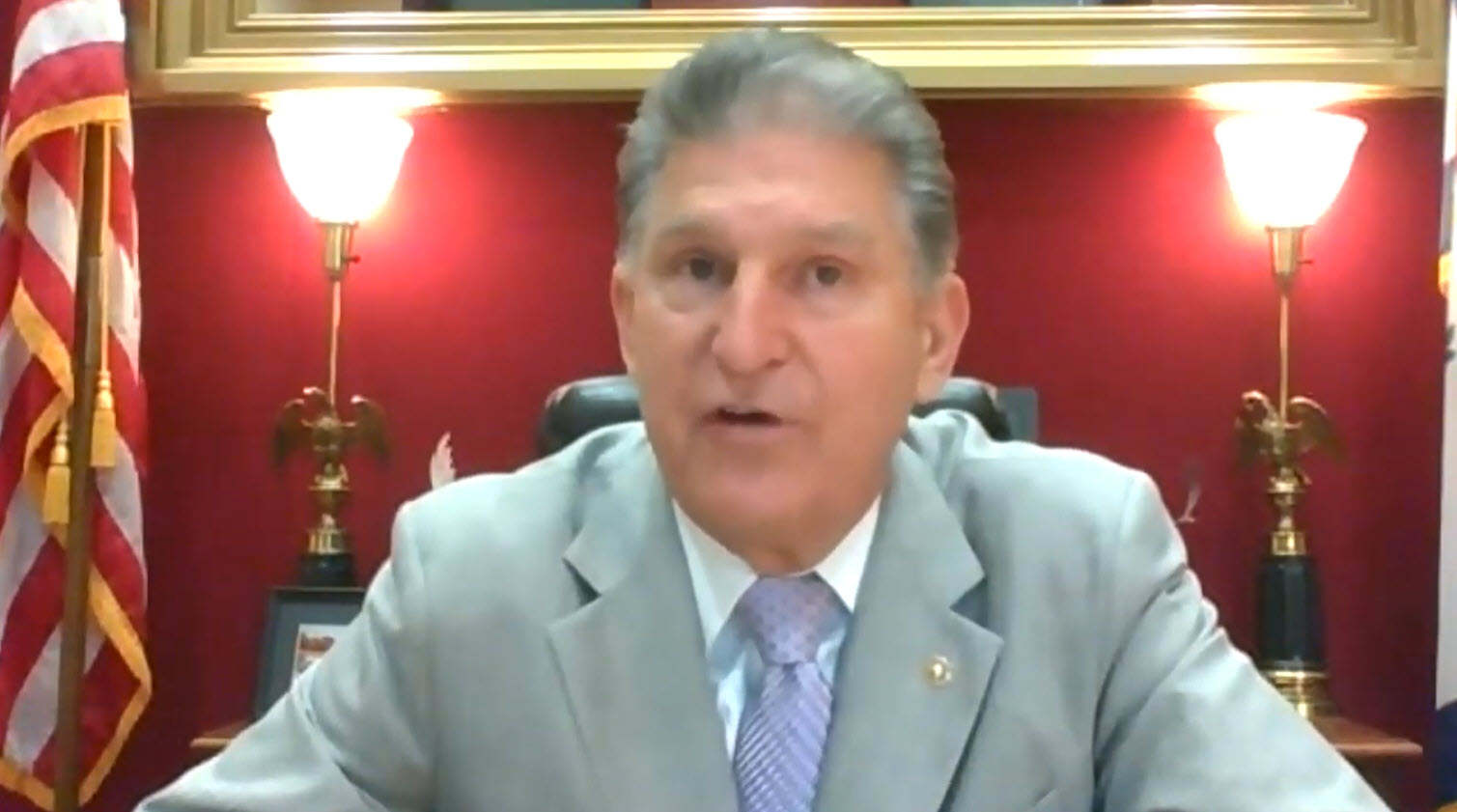
Joe Manchin, one of the errant Democrats blocking President Biden’s agenda in the Senate, is well known for having close ties to the Big Business political influence machine. He’s a former state chairman and national director of the corporate political influence group American Legislative Exchange Council (ALEC), and a top recipient of PAC money from energy, finance, and pharmaceutical companies. But he has another tie to the corporate political influence industry that has not been examined.
Since 2014, Manchin has served as the honorary chair of Discover the Real West Virginia Foundation (DRWV), an economic development charity. Also on the board are multiple corporate lobbyists and government affairs executives of companies with lobbying interests in issues that Manchin oversees as the chairman of the Senate Energy and Natural Resources Committee.
One of Manchin’s co-board members is Brad Hall, president of external affairs for Appalachian Power, who oversees the company’s government affairs activities. Appalachian Power is a subsidiary of American Electric Power and operates one of the largest coal-fired facilities in the country, the John Amos power plant in Winfield, West Virginia. The Amos plant was ranked the 14th most heavily polluting power plant in the United States in a 2013 report from Environment America.
American Electric Power reported lobbying Congress in the third quarter of last year on “Clean Electricity Payment Plan and Clean Electricity Performance Program generally,” a major climate initiative that was passed by the House of Representatives in the Build Back Better Act but unofficially died in October when Manchin said he would not vote for it. The program would have empowered the government to collect payments from heavy-polluting power plants that do not achieve emissions reduction targets in order to limit climate change.
Another DRWV board member is Patrick Robertson, a Washington, DC-based lobbyist who is principal of the firm Confluence Government Relations. Robertson’s federal lobbying clients include 3M, the Independent Restaurant Coalition, New Venture Fund, and Longview Power, which operates a coal-powered plant in Maidsville, West Virginia. Robertson also lobbies for the Historic Tax Credit Coalition, an advocacy organization that works to preserve and expand the Historic Tax Credit for rehabilitating historic buildings. During the 2017 tax reform bill debate, Manchin proposed an amendment to, among other things, restore the Historic Tax Credit, which would have been eliminated under the first draft of the bill. On his bio page of the Confluence website, Robertson highlights reviving the tax credit as one of his career successes.
Lobbyist Thomas Heywood also sits on the DRWV board with Manchin. Heywood is a managing partner and acting CEO at Bowles Rice, a law firm with a government relations practice that represents clients at the state and federal level. Heywood is a registered lobbyist in West Virginia, with clients including Community Bankers of West Virginia, West Virginia Hospital Association, and Enbridge, a multinational natural gas pipeline company.
The president of DRWV is Bill Wilmoth, member of lobbying firm Steptoe & Johnson and a former U.S. Attorney for the Northern District of West Virginia. The firm’s federal lobbying clients include Peabody Energy, the largest private coal company in the world, Berkshire Hathaway Energy, cryptocurrency exchange Coinbase, Meta, and dozens more companies and trade associations.
Manchin does not disclose his DRWV board seat on his annual financial disclosure in accordance with the filing instructions provided by the Ethics Committee that say that outside positions that are solely of an honorary nature do not need to be disclosed. Although the position is honorary, Manchin is an active participant in the group. For example, in May, Manchin was a featured speaker at an event focusing on carbon reduction technologies. The event was co-sponsored by Appalachian Power, Confluence Government Relations, and Jackson Kelly LLP, a law and government relations firm that specializes in representing energy industry clients. In 2014, Manchin defended Jackson Kelly following a report from the Center for Public Integrity found it had repeatedly hid medical evidence in order to deny coal miners black lung benefits. The lead sponsor of the event was Orion Strategies, a strategic communications and lobbying firm with offices in D.C., Charleston, W.V., and elsewhere.
Senators and representatives are allowed to serve on the boards of private companies and nonprofits as long as they are not compensated for their work, though it is unusual for them to serve on boards alongside lobbyists who may be seeking to influence them on behalf of their clients.
